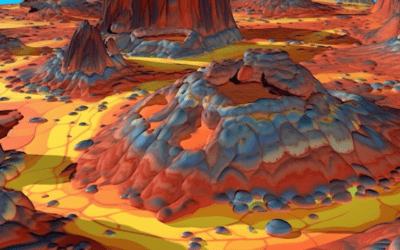Does Space Go On Forever?
Introduction
Welcome to an exploration of the vastness of space! Have you ever wondered if space goes on forever? In this article, we will delve into this fascinating question and seek to find answers.
What is Space?
Space is the vast, seemingly infinite expanse that surrounds us. It is the area in which all celestial bodies, including planets, stars, galaxies, and more, exist. Space is not just empty, but filled with gases, particles, and even radiation.
The Observable Universe
The observable universe is the part of space that we can see from Earth. It extends for about 93 billion light-years in diameter. To put it simply, light takes time to travel, and the farther an object is from us, the longer it takes for its light to reach our eyes.
Since the universe is approximately 13.8 billion years old, we can only observe objects up to 13.8 billion light-years away. If an object is farther than that, its light hasn’t had enough time to reach us yet.
Although the visible universe is vast, it is still finite. However, this doesn’t necessarily mean that space itself has an end.
Is Space Infinite or Finite?
The question of whether space is infinite or finite is a topic of ongoing scientific investigation and debate. Currently, scientists can’t say for certain which one is true.
Some theories suggest that space is infinite, stretching on forever, without any boundaries or limitations. According to this viewpoint, the universe could be just one part of an infinite cosmos, with endless galaxies and matter.
On the other hand, some theories propose that space is finite, but unbounded, meaning it has no edges or boundaries. Just like the surface of a sphere is finite but has no edges, space could curve back onto itself, forming a shape called a “hypersphere.” In this case, if you keep traveling in one direction, you would eventually reach your starting point.
However, it is important to note that these are just theories, and we don’t currently have enough evidence to definitively prove which one is correct.
The Expanding Universe
One remarkable discovery that has shaped our understanding of space is the fact that the universe is expanding. In the early 20th century, astronomers observed that galaxies are moving away from each other — like raisins in a rising loaf of bread.
This expansion suggests that space itself is stretching and becoming larger. However, it is essential to understand that the expansion of the universe doesn’t necessarily indicate an infinite expanse.
Picture the universe as the surface of a balloon being blown up. As the balloon expands, all points on its surface move away from each other, yet the surface itself remains finite.
Limitations of Current Knowledge
While our current knowledge offers fascinating insights, it is vital to acknowledge that there is much we still don’t know and understand about space.
Exploring space is a challenging endeavor due to various limitations. One significant constraint is the tremendous distances involved. The vastness of space makes it difficult for us to gather information beyond the observable universe.
Additionally, our technological capabilities and scientific instruments have limitations. We continue to innovate, but many mysteries remain to be unraveled.
Therefore, as research and technology advance, scientists may continue to uncover more about the nature of space and provide answers to age-old questions.
Conclusion
In summary, the question of whether space goes on forever or has an end is still unanswered definitively. Current theories suggest the possibility of both an infinite and unbounded universe, as well as a finite but unbounded one.
While we may not have a conclusive answer at this time, the exploration and study of space continue to unravel its fascinating mysteries. As humanity ventures further into the cosmos, we may one day have a clearer understanding of the true nature of space.












